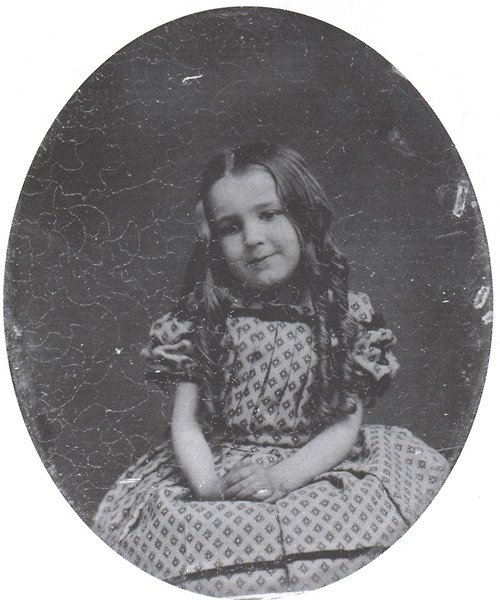As a father of a lovely little 8-year-old girl the origin of this saying horrified me. Seriously, I was shocked and disgusted at the frequency of its usage and the likelihood that that person does not know nor will ever know the origin of it.
( )
)
"Sweet Fanny Adams" was an eight-year-old girl who lived in a place called Alton in England back in 1867. She was out playing with her friend and sister on a weekend afternoon. She was the eldest of the three girls with Minnie Warner being 7 and Elizabeth Adams being 5. Alton was a small peaceful village in Hampshire with nothing much happening or recorded for many many years.

They played on Tanhouse Lane with the consent of Fanny's mother Harriet Adams. "In the lane they met Frederick Baker, a 29-year-old solicitor's clerk. Baker offered Minnie and Elizabeth three halfpence to go and spend and offered Fanny a halfpenny to accompany him towards Shalden, a couple of miles north of Alton. She took the coin but refused to go. He carried her into a hops field, out of sight of the other girls."

"At about 5 p.m., Minnie and Elizabeth returned home. Their neighbour, Mrs. Gardiner, asked them where Fanny was, and they told her what had happened. Mrs. Gardiner told Harriet, and they went up the lane, where they came upon Baker coming back. They questioned him and he said he had given the girls money for sweets, but that was all. His respectability meant the women let him go on his way."

"At about 7 p.m., Fanny was still missing, and neighbours went searching. They found Fanny's body in the hop field, horribly butchered. Her head and legs had been severed and her eyes removed. Her eyes had been thrown into the River Wey. Her torso was dismembered and the entire contents of her chest and pelvis had been torn out and scattered across the hop field, with some internal organs found further slashed or mutilated. Her remains were taken to and put back together in a nearby doctor's surgery at 16 Amery Street."

Fanny's mother ran to where her husband a bricklayer George Adams, was playing cricket. She told him what had happened to his little daughter Fanny. George got his shotgun from home and set off to find the perpetrator, his neighbours stopped him.
That evening Police Superintendent William Cheyney arrested Baker at his place of work. He was led through an angry mob to the police station. There was blood on his shirt and trousers, he could not explain, but he protested his innocence. He was searched and found to have two small blood-stained knives on him.
Many witnesses put Baker in the area, returning to his office at about 3 pm, then going out again. Baker's workmate, fellow clerk Maurice Biddle, reported that, when drinking in the pub that evening, Baker had said he might leave town. When Biddle replied that he might have trouble getting another job, Baker said: "I could go as a butcher". On 26 August, the police found Baker's diary in his office. It contained the entry:
"24th August, Saturday – killed a young girl. It was fine and hot"
Those few words effectively put his head into the noose at what transpired to be Britain's last public execution. On Tuesday, 27 August, Deputy County Coroner Robert Harfield held an inquest. Painter William Walker had found a stone with blood, long hair and flesh; police surgeon, Dr Louis Leslie had carried out a post mortem and concluded that death was by a blow to the head and that the stone was the murder weapon. Baker said nothing, except that he was innocent. The jury returned a verdict of wilful murder. On the 29th, the local magistrates committed Baker for trial at the Winchester County Assizes. The police had difficulty protecting him from the mob.
At his trial on 5 December, the defence contested Minnie Warner's identification of Baker and claimed the knives found were too small for the crime anyway. They also argued insanity: Baker's father had been violent, a cousin had been in asylums, his sister had died of a brain fever and he himself had attempted suicide after a love affair. The defence also argued that the diary entry was typical of the "epileptic or formal way of entry" that the defendant used and that the absence of a comma after the word killed did not render the entry a confession.

Justice Mellor invited the jury to consider a verdict of not responsible by reason of insanity, but they returned a guilty verdict after just fifteen minutes. On 24 December, Christmas Eve, Baker was hanged outside Winchester Gaol. The crime had become notorious and a crowd of 5,000 attended the execution. Before his death, Baker wrote to the Adamses expressing his sorrow for what he had done "in an unguarded hour" and seeking their forgiveness.
Little Fanny was buried in Alton given a funeral. It would have been that nobody from Alton in their life times could have recalled such as sad situation. Rest in peace Fanny and keep our children safe from both men and women who want to harm them.

Few people today probably are aware of the background of the phrase Sweet Fanny Adams' but her gruesome killing made sensational headlines throughout the land.
Please upvote, follow, resteem and comment